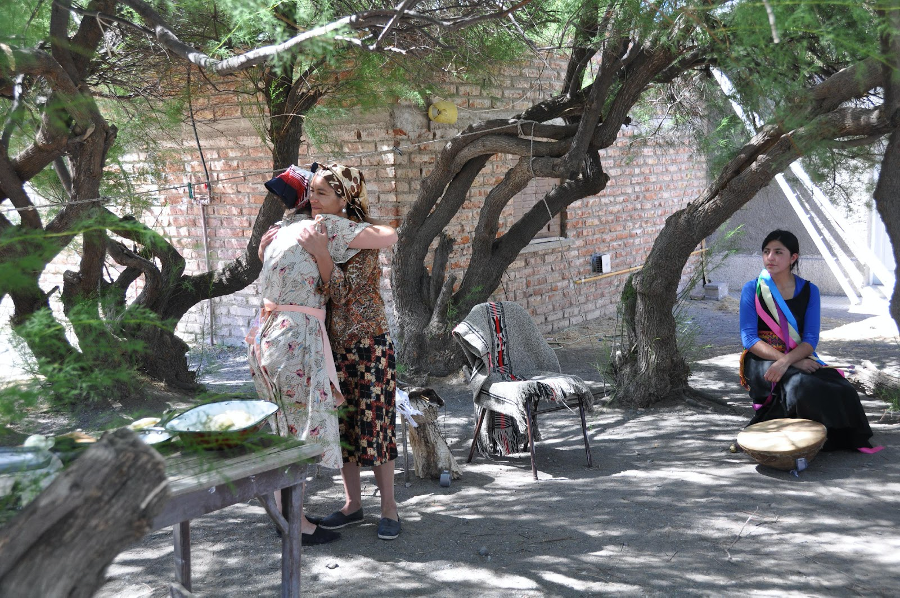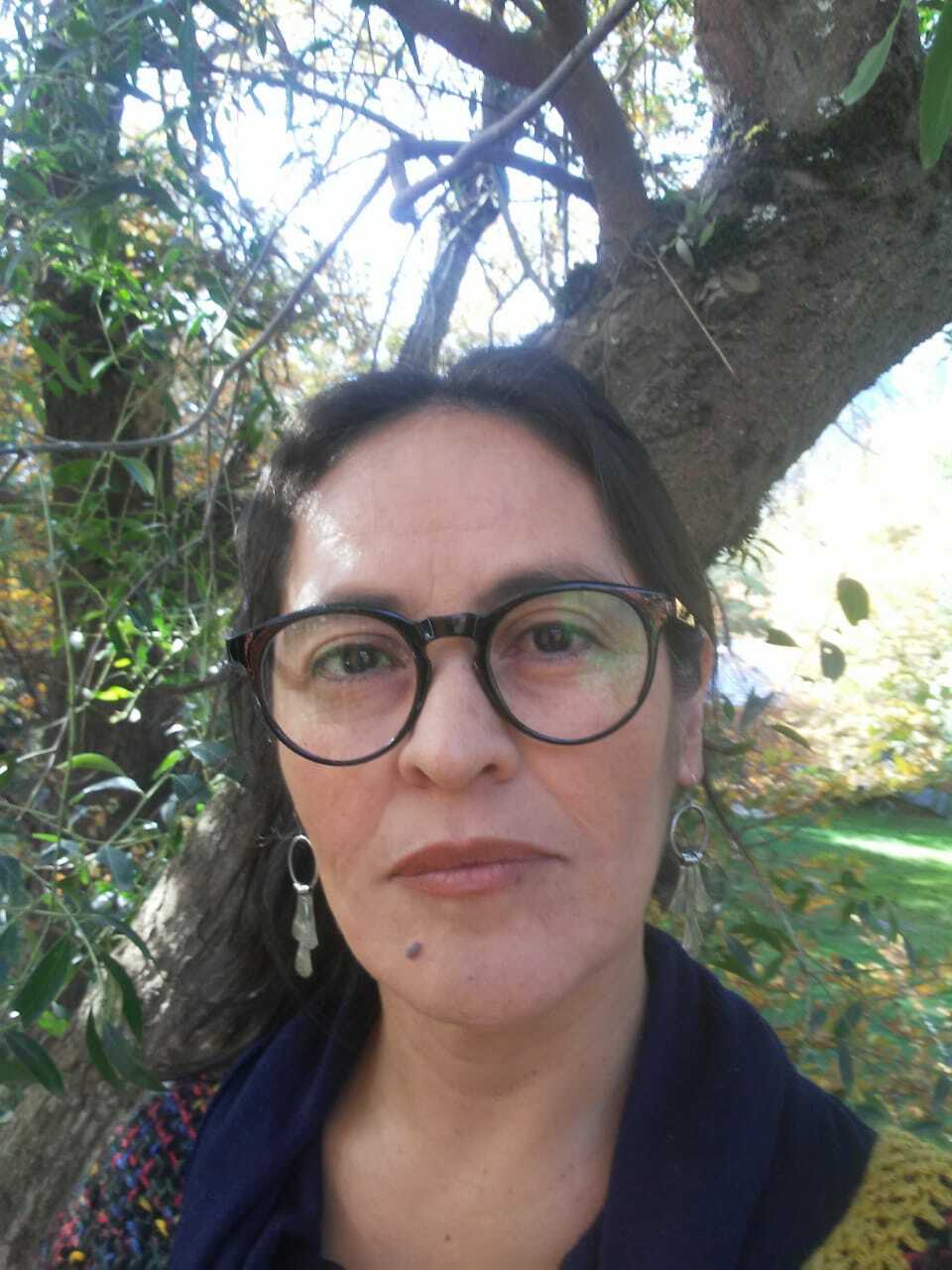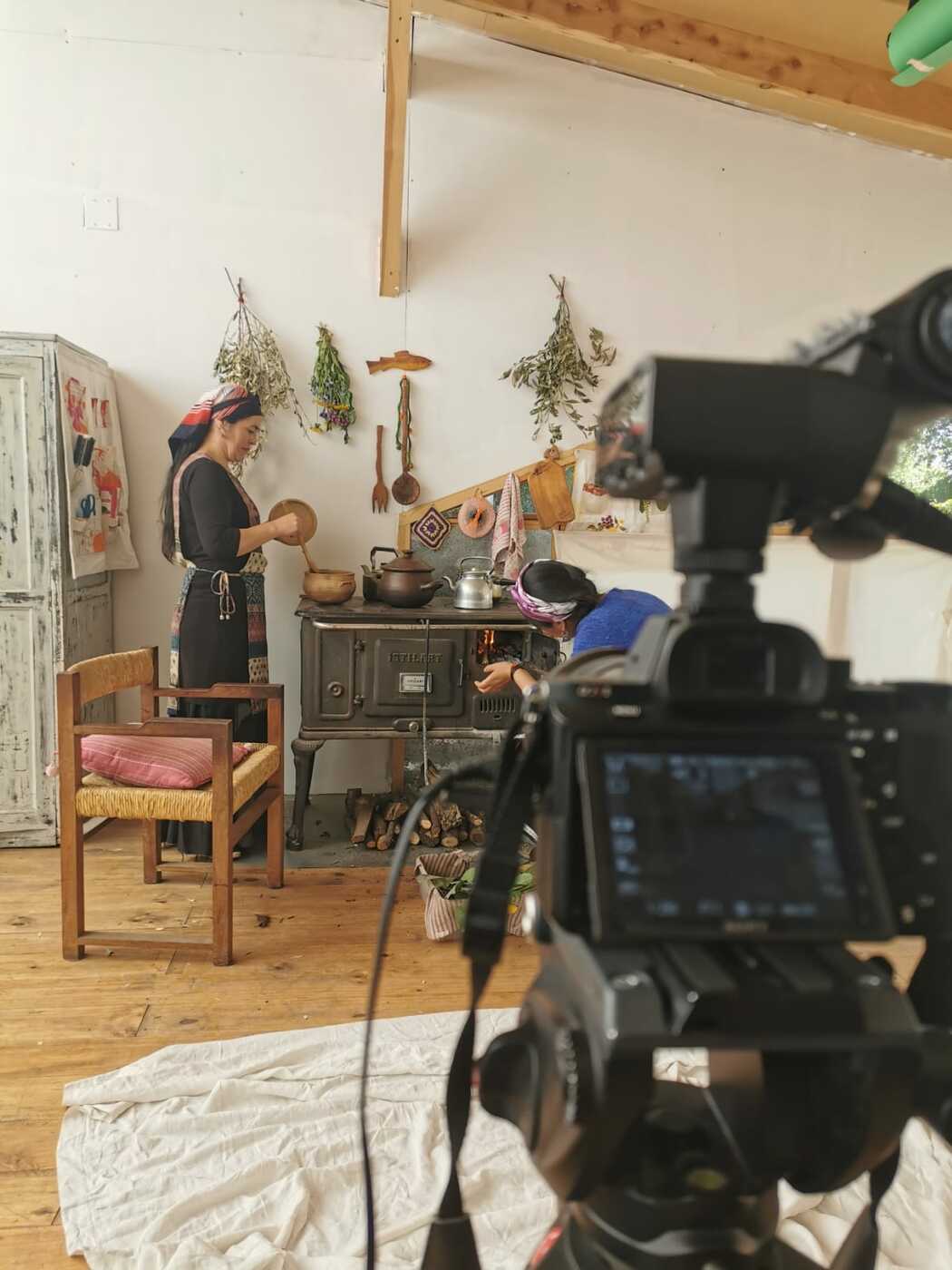Teatro Mapuche El Katango
Lorena Cañuqueo, Miriam Álvarez, Ana Vivaldi
The Mapuche Theatre Group "El Katango" emerged in 2002, in the Patagonian city of Bariloche, as part of a trajectory of activism that aimed to question stereotypes about Indigenous people produced by the state and the Mapuche movement itself. Katango is the name of a traditional ox- or horse-drawn cart commonly used by Mapuche families in rural areas to get around.

The name was chosen as a metaphor for how Mapuche people move around as a survival strategy. The network sought to make visible the urban presence of the Mapuche and raise awareness about the complex web of relationships that are established in the present and the diverse ways of living and expressing that identity. In order to dismantle an image of Mapucheness that excluded a large percentage of the Mapuche population, they decided to use theatre, communication, and academic research.
El Katango's work builds a poetic language by investigating gestural repertoires. It uses Mapuche people’s images and memories of forced displacement and the rupture of family and community ties. The dramaturgical work explores a vast repertoire of narratives, oral memories (including those of the actresses and their families), and archival work. Using these methodologies, the group sought to mobilise the large percentage of the Mapuche population that was marginalised from the discourse and political action of Mapuche organisations at the beginning of the 21st century.
In more than ten years of work, El Katango has staged the works Kay kay egv xeg xeg (2002), a rereading of a story of Mapuche origin, Tayiñ kuify kvpan (Our Ancestral Ascendency, 2004) and Pewma (Dreams, 2006), all based on collective playwriting oriented by Miriam Álvarez. The work incorporates two experiences of street theatre in the city of Bariloche that territorialised ceremonial aspects in the city and generated a critique of hegemonic identity models.
During the collaborative work with CARLA, Miriam Álvarez produced two scenes. Las hierbas (The Herbs) addresses present territorial conflicts and focuses on the relationship between the countryside and the city and the daily life of Mapuche care practices. This scene can be seen in the video included in the exhibition. The other, Como dos gotas de agua (Two Peas in a Pod), proposes an innovative crossing between a Mapuche's displacement experiences and an Afro woman.
The women exchange their experiences of forced movement caused by state agents and other actors. At the same time, the current focus on gender, a result of the rise of the feminist movement from the beginning of the 21st century, allows racialised women's daily experiences to be put on the agenda. These women come together in the scene, breaking an official history that makes the Afro-Indigenous interactions unthinkable in Argentina.
The scene deals with the current conflict that Mapuche people have with the Argentine state over their ancestral lands. It describes how, even after death, the Mapuche must continue fighting to return to a space that was once their own and is currently invaded.
The character of Don Martiniano condenses a series of similar stories of Mapuche leaders who fought under adverse conditions to reunite broken families and find a place to settle and live after the military occupation of the Indigenous territories in Patagonia in the late 19th century. Meanwhile, the female characters give an account of the Mapuche displacement to the city caused by the marginalisation and stigmatisation of the families who survived the army’s advance.
The play questions the racist foundations that justified the territorial dispossession of the Mapuche people. In poetic terms, gestures, scenic elements and corporality represent the importance of pu lawen - Mapuche traditional medicine - in the reconnection of displaced Mapuche people with their territory and the re-establishment of a state of collective well-being.
Credits
Authorship and direction
Miriam Álvarez
Actors
Lorena Cañuqueo and Miriam Álvarez
Audio-visual production
Natalia Cano
Research
The scenes were created using collaborative research by Alejandra Egido, Miriam Álvarez, Lorena Cañuqueo and Ana Vivaldi
Dramaturgia Clandestina
The script was written in the drama writing workshop led by David Arancibia under the aegis of Dramaturgia Clandestina, a theatre reseach and publishing group.


